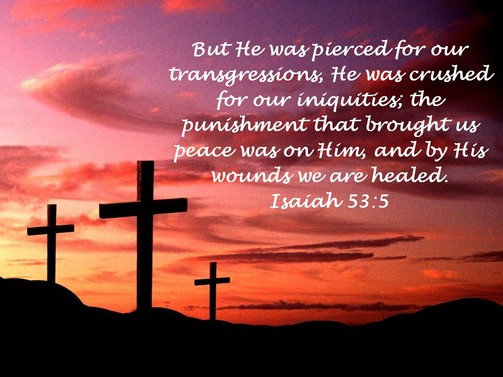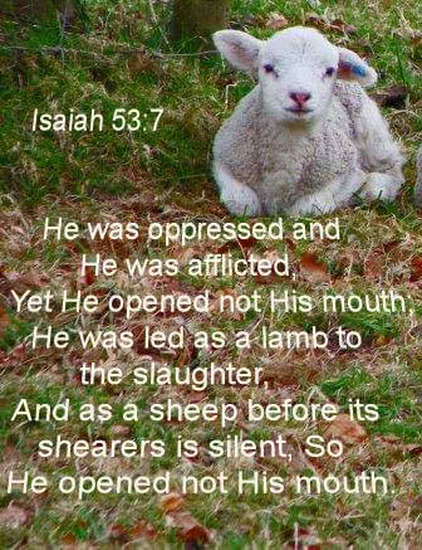The Book of Isaiah

The book is named after the prophet whose message it records. Isaiah wrote during the stormy period marking the expansion of the Assyrian empire and the decline of Israel. He warned Judah that her sin would bring captivity at the hands of Babylon. Although the fall of Jerusalem would not take place until 586 B.C., Isaiah assumes its demise and proceeds to predict the restoration of the people from captivity. The decree of Cyrus would allow the Jews to return home, a deliverance that prefigured the greater salvation from sin through Jesus Christ. Significantly, Isaiah's name means "The Lord saves."

Isaiah son of Amoz was the greatest of the writing prophets and a contemporary of Amos, Hosea and Micah. Most of the events discussed in chapters 1-39 occurred during Isaiah's ministry, so it is likely they were completed around 700 B.C. He lived until at least 681 and may have written chapters 40-66 during his later years.
Isaiah unveils the full dimensions of God's judgment and salvation. The awful judgment unleashed on Israel and all who defy God is called "the day of the Lord." The Lord's kingdom on earth, with its righteous Ruler and His righteous subjects, is the goal toward which the book of Isaiah steadily moves. The restored earth and the restored people will then conform to the divine ideal, and all will result in the praise and glory of the Holy One of Israel.
Isaiah contains some of the most incredible prophecies of any book. It contains foreknowledge, in incredible detail about the Messiah, and the future reign of Jesus Christ.
Isaiah unveils the full dimensions of God's judgment and salvation. The awful judgment unleashed on Israel and all who defy God is called "the day of the Lord." The Lord's kingdom on earth, with its righteous Ruler and His righteous subjects, is the goal toward which the book of Isaiah steadily moves. The restored earth and the restored people will then conform to the divine ideal, and all will result in the praise and glory of the Holy One of Israel.
Isaiah contains some of the most incredible prophecies of any book. It contains foreknowledge, in incredible detail about the Messiah, and the future reign of Jesus Christ.

The purpose of the book of Isaiah was to call God’s nation, the nation of Judah, back to faithfulness and to declare to coming Messiah “Immanuel”. God calls and commissions His prophet to declare to Judah and Israel condemnation, conviction and ultimately great hope.

In Chapters 1-39, Isaiah points out the sins of both North and South Kingdoms.
He then declares severe punishment to them and all the neighboring nations
around them, “Wash yourselves, make yourselves clean; Remove the evil of your deeds from My sight Cease to do evil” (1:16). He proclaims great hope of the coming Savior, “Therefore the Lord Himself will give you a sign: Behold, a virgin will be with child and bear a son, and she will call His name Immanuel” (7:14), this passage was fulfilled in Matthew 1:22-24, in the
New Testament.
He then declares severe punishment to them and all the neighboring nations
around them, “Wash yourselves, make yourselves clean; Remove the evil of your deeds from My sight Cease to do evil” (1:16). He proclaims great hope of the coming Savior, “Therefore the Lord Himself will give you a sign: Behold, a virgin will be with child and bear a son, and she will call His name Immanuel” (7:14), this passage was fulfilled in Matthew 1:22-24, in the
New Testament.

Chapters 40-55, speak of the return and restoration after the exile from Babylon. Isaiah repeatedly claims the premise, “There is no God beside Me” (44:6,8; 45:5,6,14,18,21). There is also another foretelling of the Messiah, who will come and bring new life through His death, “He was
oppressed and He was afflicted, Yet He did not open His mouth; Like a lamb that is led to slaughter, and like a sheep that is silent before its shearers, So He did not open His mouth” (53:7).
oppressed and He was afflicted, Yet He did not open His mouth; Like a lamb that is led to slaughter, and like a sheep that is silent before its shearers, So He did not open His mouth” (53:7).

In chapters 56-66, Isaiah writes of the new Heavens and Earth, This is that
great reward for all those who trust and obey God. He proclaims the hope for the afflicted and judgment for the evil. “For behold, I create new heavens and a new earth; and the former things will not be remembered or come to mind” (65:17).
Foreshadowing of Jesus
Chapter 53 of Isaiah describes the coming Messiah and the suffering He would endure in order to pay for our sins. In His sovereignty, God orchestrated every detail of the crucifixion to fulfill every prophecy of this
chapter, as well as all other messianic prophecies of the Old Testament. The imagery of chapter 53 is poignant and prophetic and contains a complete picture of the Gospel. Jesus was despised and rejected (v. 3; Luke 13:34; John 1:10-11), stricken by God (v.4; Matthew 27:46), and pierced for our transgressions (v. 5; John 19:34; 1 Peter 2:24). By His suffering, He paid the punishment we deserved and became for us the ultimate and perfect sacrifice (v. 5; Hebrews 10:10). Although He was sinless, God laid on Him our sin, and we became God’s righteousness in Him (2 Corinthians 5:21).
continue to Jeremiah...
great reward for all those who trust and obey God. He proclaims the hope for the afflicted and judgment for the evil. “For behold, I create new heavens and a new earth; and the former things will not be remembered or come to mind” (65:17).
Foreshadowing of Jesus
Chapter 53 of Isaiah describes the coming Messiah and the suffering He would endure in order to pay for our sins. In His sovereignty, God orchestrated every detail of the crucifixion to fulfill every prophecy of this
chapter, as well as all other messianic prophecies of the Old Testament. The imagery of chapter 53 is poignant and prophetic and contains a complete picture of the Gospel. Jesus was despised and rejected (v. 3; Luke 13:34; John 1:10-11), stricken by God (v.4; Matthew 27:46), and pierced for our transgressions (v. 5; John 19:34; 1 Peter 2:24). By His suffering, He paid the punishment we deserved and became for us the ultimate and perfect sacrifice (v. 5; Hebrews 10:10). Although He was sinless, God laid on Him our sin, and we became God’s righteousness in Him (2 Corinthians 5:21).
continue to Jeremiah...